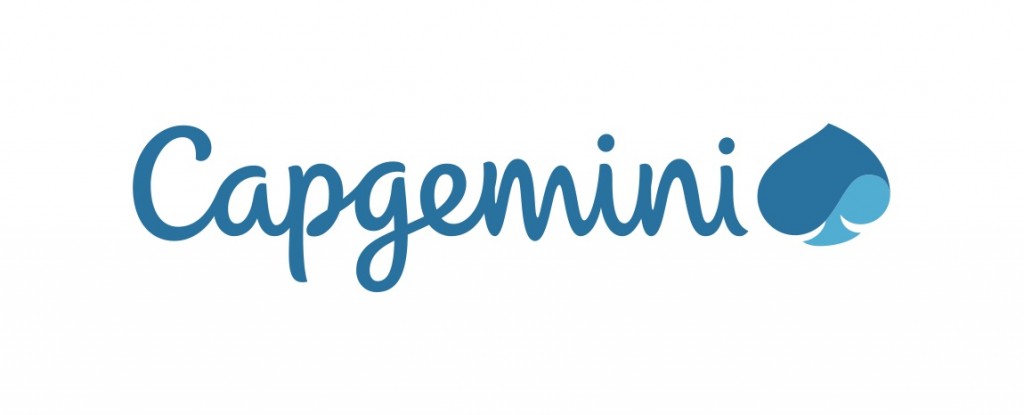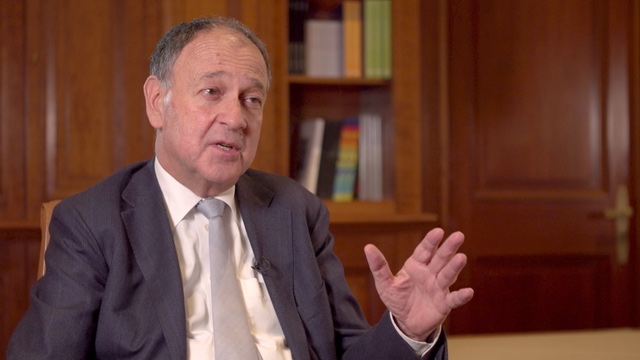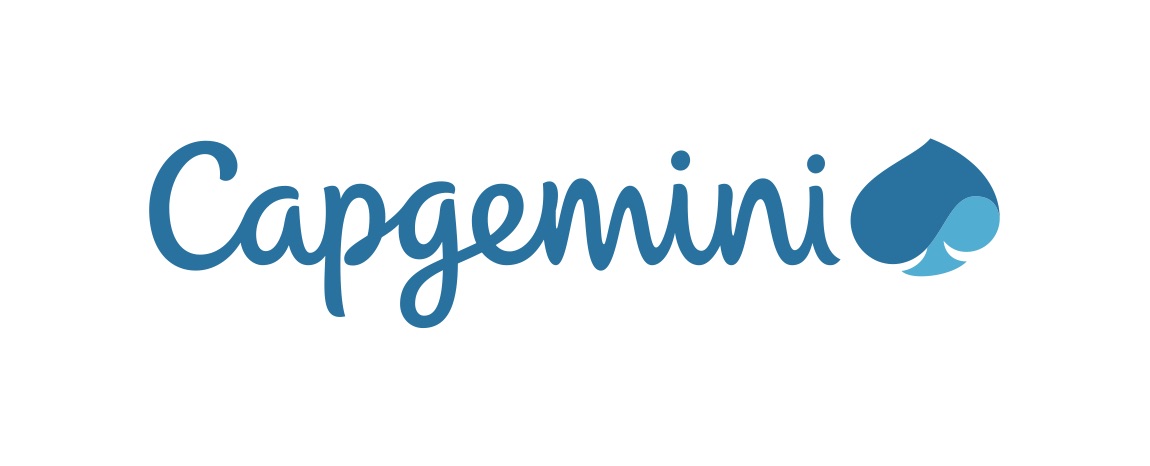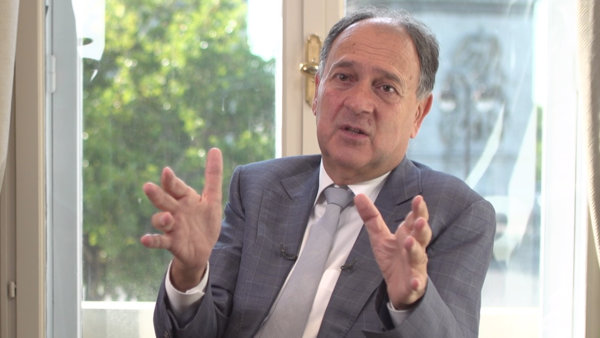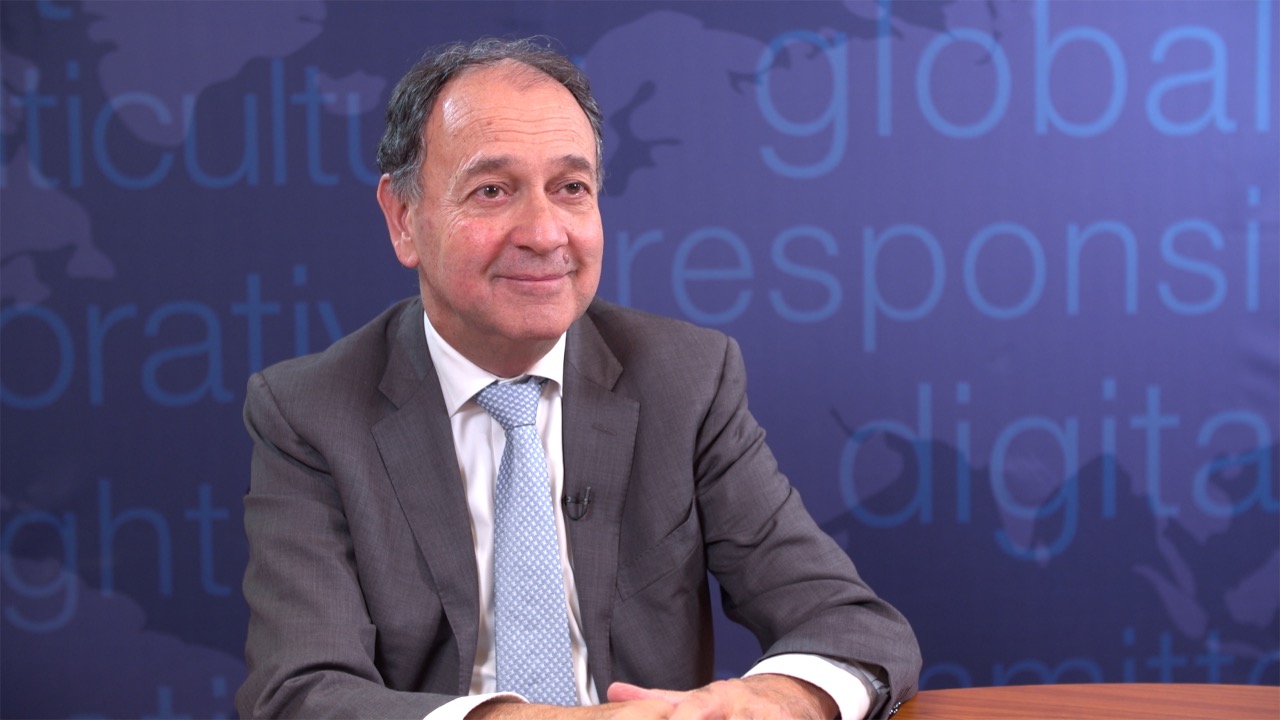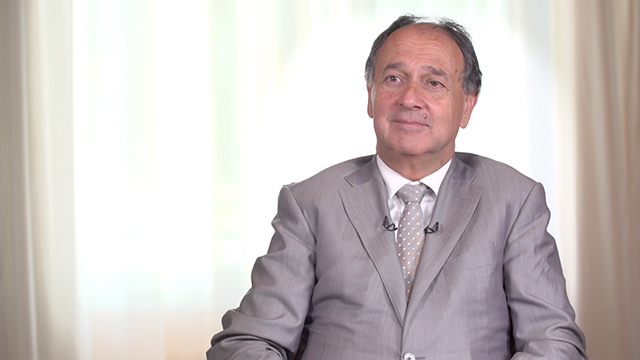EuroBusiness Media (EBM): Capgemini, a global leader in consulting, technology, outsourcing and local professional services, reports earnings for the first-half of 2010. Paul Hermelin, welcome. You are the CEO of Capgemini. What are your comments on the group’s performance in the first-half of this year?
Paul Hermelin (PH): We have reported the first quarter, now it is time to look at the full half-year. Actually, there has been some kind of rebound in the second quarter, so we report figures that are ahead of what we had anticipated, notably in February, so slightly better. We report revenues that are still declining by 3.8% like for like, at constant exchange rates, and perimeter is still a 6 % decline. But the speed of decline is rapidly decreasing, so the second quarter is -4%. And we start to see that some of our operations have started growing year-on-year, so we see that notably in emerging markets and in the financial sector. So the market is coming back. Sogeti, which is probably the most cyclical business, is doing far better, so in the second quarter it’s flat year-on-year, so the decrease is behind us. If you look sequentially, if you compare the first-half of 2010 and the second-half of 2009, now we grow, we grow by 5.8%. So we can say it’s the tipping point, and the group has started growing again. Now margin. We still have to swallow the price decrease of last year. The margin is at 5.8%, which is quite coherent with the level we had last year. It’s more than what we had guided for. It must be improved in the future. The rest of the results are pretty nice, bookings are excellent, nice book-to-bill, good growth everywhere. In all service lines the book-to-bill is at 1.28, so that is quite promising for the future. The cash, 800 million (euros) - that’s where we are guided - very satisfactory, so a good half-year.
EBM: What is your update today on the launch of your five new Global Service Lines?
PH: These have been pretty instrumental in these good bookings campaigns. They represent 36 percent of our bookings, and they are growing, and we have built solid position. I think of Business Information Management, where we are seen as a clear leader now, Application Life-cycle Services, where we were a little bit behind and where we are catching up rapidly. Gartner has very highly rated our offerings there and we’ve signed some pretty significant deals in ALS. I think of our efforts in Testing where we are probably #1 worldwide and where we signed some nice deals too. And then two more advanced offerings: one around the cloud and what we call Infostructure Transformation Services, where we have a few wins, and notably this deal with Royal Mail in the UK, which will serve as a platform, and where we’ll say what we now call "platform as a service." And last would be Smart Energy, where we just announced another small acquisition in Sweden - Skvader - in addition to the deal we won in January, Fortum. We are leader is smart energy, not only in North America, but in Northern Europe, and we will cover the map.
EBM: What can you tell us today about human resources and hiring at Capgemini?
PH: There too the tipping point I referred to is very visible. The first point is, we are growing rapidly offshore, as expected. In India, head count moved from 22,000 to 26,000, so that’s pretty significant - more than 16% growth in 6 months, that’s pretty rapid. The rest of the offshore resources grow too, but we have resumed now growing onshore, and after the recession it’s the first time. So, when? In Sogeti, we started to grow onshore as of March. So we are now growing in Sogeti onshore. And in Technology Services, our systems integration arm, we have started turning the corner in June and we now grow. So my expectation is that we will grow pretty rapidly. The group counts 95,600 people at the end of June, that is significantly more than in January, and we will cross the 100,000 mark in the second-half.
EBM: Do you expect the recovery of the IT services sector to continue in the second-half of this year, or do you fear that it will be cut short due to macroeconomic concerns?
PH: Today, there is a wind of optimism, but we see the financial markets, their instability, the fears about public debts. So what do we see? First, everybody in Europe is still pretty optimistic. The question marks are around the US, and notably we heard what the Fed declared about the risks to the economic recovery. Our own operations are rather optimistic. Today the pipeline is solid, and the perspectives of closing deals in the second-half are pretty strong. So I’m not too anxious, but we should monitor, and notably we should monitor the public sector demand.
EBM: What are your comments on the projected impact of the public sector spending cuts in the United Kingdom, and should we expect more of the same in other major EU markets?
PH: The first point is, we have some good prospects in the public sector - it looks strange when you think of the sovereign debt crisis, but we grow in the public sector in the US, and we might even grow in France, with the "grand emprunt," so there are some opportunities. In the UK we monitor the situation very tightly. We are a very important partner of the government, and we will try to meet their expectations. So, we are making savings, but also proposing additional contracts, because we think IT will be instrumental in the control of public spending and public costs. In my view, it’s a situation that might prove delicate but where there are growth opportunities in the mid- and long-term.
EBM: What is your update on your pipeline of potentially large outsourcing contracts and where do your negotiations stand today on some of these deals?
PH: The first point is, in the first-half, we spent a lot of time, and a lot of people were mobilized, on securing existing contracts. So, we could prolong and close expansion of some existing customer-relationships. So we could confirm, prolong, on a sole source base, Hydro One in Canada. We recently confirmed Metropolitan Police in the UK, and more recently General Motors in the US. So a good campaign of solidification of our existing customer relationships. Now it’s time that we mobilize the same people on new logos - that will be our second-half priority.
EBM: What is your update today on your acquisition strategy?
PH: Visibly, in the first half we closed several small deals. We completed the acquisition of IBX in Sweden, as a BPO platform for procurement. We took full control of some joint-venture - SSS, which brought to the group a Philippine platform for the first time. We completed the acquisition of Indigo in BPO. So we did a few small transactions, and there will be some more in the pipeline. Regarding bigger ones, well, you know, an acquisition is something you comment on when you close it because, in our world, it’s a people business: an acquisition is, I would say, a love affair between a team that should be ready to join the Group - hopefully we will progress on that.
EBM : Lastly, what is your guidance for the full-year, do you confirm your previously stated objectives for 2010?
PH: I think that after a pretty solid second quarter, people would not understand if we didn’t lift somewhat the guidance. So, with moderation and prudence, because of the uncertainties, we guide today for a revenue growth in the second-half between 3% and 5%, which will certainly limit the overall revenue evolution for the full year. And, in the past, we had said that margin should be between 6% and 6.5%. We can clearly say today that we will be above 6.5%. It’s too early to give ceiling to that range because of some uncertainties, but we will beat the 6.5% mark for sure.
EBM : Paul Hermelin, CEO of Capgemini, thank you.
PH: Thank you.

